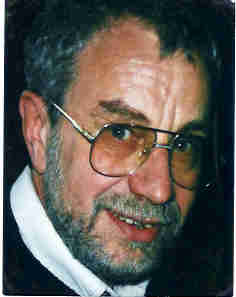 Kanjagas, Builsa, Bulisa or Bulsa?
Kanjagas, Builsa, Bulisa or Bulsa?
 Kanjagas, Builsa, Bulisa or Bulsa?
Kanjagas, Builsa, Bulisa or Bulsa?
When in 1972 I had entered Ghana by way of Accra for the first time in my life to do some research among the Bulsa I was curious to know what people in the capital knew and thought about those people in the north of their home-country. The first person I asked was my taxi-driver: "Do you know any Bulsa?" - "No, where do they live?" - "In the Upper Region". - "No, I have never heard of them." When the driver perceived my disappointment, he tried to help me. "Do you mean the Frafra?" - "No, they live east of the Frafra." - Then he tried to display all his ethnographic knowledge about the North of his country: "...the Kasena? Mamprusi? Kanjagas?" - He had hit the point at last. I had found this colonial name before in some obscure book, but did not know that it was still common in Ghana.
I knew that it was the first name that the British used for the people living roughly between the Tano, Sisili and Kulpawn / White Volta rivers. To say it straight away: the name is wrong because it is based on a misunderstanding. When men from the village of Kanjaga1 were recruited for the British colonial army, they were probably asked "Where are you from? What is your tribe called?" And the answer was perhaps "We are Kanjagas". The British took the placename to be the tribal name, and this error had been perpetuated for many years.
More worthwhile than pondering on an obsolete and wrong name is the discussion if we should write Builsa or Bulsa. The first form has a considerable argument in its favour: it is the official spelling form, and a change might cause confusion for some time.Apart from this there cannot be said very much in favour of the Builsa-spelling. The form itself is probably due to a misspelling of the correct form Bulisa, with the i having slipped before the l. However, it has no function of qualifying the /u/ pronunciation, which is never frontal2 after b, nor does the ui in Builsa demand a diphtongal pronunciation (as in juik 'tail', tuik 'baobab' etc.). So the ui-spelling in a journal that will be read not only by Bu(i)lsa, but also by all who show some interest in this people, will be confusing, especially for those who have never heard bout this ethnic group. An for the Bulsa themselves it will certainly be more annoying to be called [brlsa] or [builsa] by foreigners than giving up the i in the spelling of their ethnonym.
Before concluding the discussion the author wants to draw attention to an abuse that - in his personal opinion - should be discarded completely, namely adding an -s to the ethnonym to mark the plural (e.g. Builsas, Bulsas, Dagombas etc.). Everybody should respect the vernacular plural on -sa. And why should we mix English (-s) and Buli (-sa) even in one word. In English nobody would think of adding an -s to the plural-forms 'oxen, children, women, Englishmen etc.'
More difficult is the question if Bulsa should be used in the singular, too, when the speaker expresses himself in English. I myself have more often heard the phrase "I am Bulsa" than the correcter form "I am a Bulo". The problem is, if Bulsa has become already, in its English usage, a technical term, the plural meaning of which is no longer conscious in the minds of the native speakers, and that can be used like an adjective, as it is the case with the term English: "The English speak English. He is English. They are English..."
Dear Bulsa readers! I hope you sympathize with an outsider (I am German) who has some problems writing about and addressing your own ethnic group. By the way, the problems with the names of my own ethnic group, the Germans, is more difficult, and there is no unanimity about what we should be called. The French call us "Allemands", but the "Allemannen" are only what we might call one German "tribe". The English call us "Germans", but the "Germanen" were a big group of many peoples (including the English, the Scandinavians etc.). We call ourselves "Deutsch(e)", a word which the English (in the form "Dutch") use only for the inhabitants of the Netherlands. The name "Deutsch" (in old German diet or tiut) was not a real ethnonym or proper name, but it just meant "people".
So you see that the problem about the Kanjaga(s), Builsa and Bulsa is only a minor one (and there are also more serious problems about other Ghanaian groups, e.g. the Frafra). Nevertheless I would like to ask all Kanja(r)ga(s), Builsa(s), Bulisa(s) and Bulsa(s) who have read this article to tell us their own opinion about their appropriate ethnic name and its spelling.
Footnotes:
1. According to my knowledge the r before g (Kanjargas) is not justified in its orthographic form. It may have intruded to indicate that the g is not a palatal or velar stop [g] but a velar ficative [q], and indeed the French and a German variety of r are very close to this velar fricative in pronunciation. But writing an r before every fricative pronunciation of the /g/ would appear to be very confusing (e.g. barge instead of bage 'horn', marga marga instead of maga maga, 'a little' etc.)
2. The French write u or ue for the frontal [r]-sound, as in rue (street) or but (aim), while the Germans have a letter of its own for this sound, namely ü [r] contrasting [u].